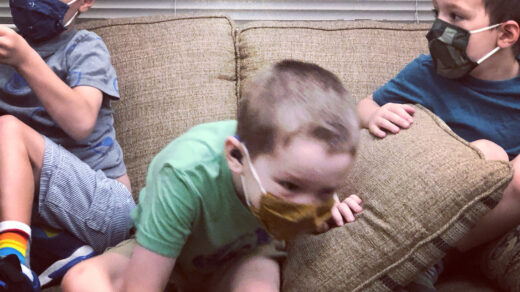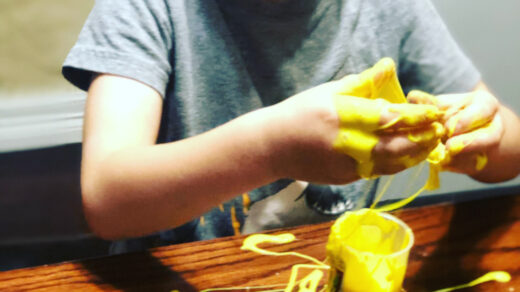“Mom, my legs hurt,” my oldest son complained one morning as he laid in bed. Though I considered that he was just trying to stall (yet again) the process of getting up and getting dressed, I also felt that leg pain sounded familiar. Most likely, he was suffering from the pain of growing rapidly, something that kids his age do constantly. I have memories of that pain. Anyone who grows 8 inches from the end of 8th grade to the end of 9th grade would not forget that pain. Growing pains can also sometimes comes with scars, like all the stretch marks I had well before my children gave me more. They are deep aches, necessary aches but challenging nonetheless. They are the aches of growth, of change. And they are aches that can manifest even when the growth is not as apparent as when skinny ankles start to peak out from under the hem of still-good, fairly-new uniform pants.

Aches can hurt, and we can react to that hurt in a variety of ways – like kicking and screaming the whole way about the burden of pain… or leaning into it having faith that it is… temporary. I remember one of my first years of teaching. First years are always filled with growing pains, and not one of mine was an exception to this rule. This one, however, was particularly achy. There is something about learning how to be an Ignatian educator that mimics the growing pains of youth. Suddenly everything I had learned about teaching and spirituality and who I was as a person of faith was turned on its head. And, like a child suddenly facing rapid growth, I did not know exactly how to deal with it all. So, I fought against it. I came to meetings with my faculty advisor with the conclusions already reached. I knew what I excelled at and, even more clearly, I knew what I needed to improve. And, I already had a plan. Every time. I called it “being prepared.” Perhaps “being prepared” to avoid hearing directly from another person what improvements they thought I needed. “Being prepared” so that I was not vulnerable.
“Being prepared” in this way, however, was not an effective way of proceeding. It left me closed off to what another person had to say. It left me unavailable to the fruits that can come from acknowledging that different perspectives exist… even different perspectives on you. And it left me closed off to acknowledging that sometimes God speaks through others instead of directly to me.
One particular meeting with my faculty advisor started off as all the rest, with me taking out my prepared list and beginning to speak first. But this time, she interrupted me. Asked me to pause, and then asked me to leave her office. “I can not help you until you let me. Come back when you are ready to let me.” Baffled, I left. And over the next couple weeks, I approached her door several times without knocking or going in. Each time I had rehearsed exactly what I would say. And each time I thought I was about to raise my hand and knock, I realized what I would say was not quite right yet. Eventually, I knocked. I walked in. I told her that I was ready to listen, but I also had a better understanding of what I needed from her to listen. I chose to lean in with faith that what was about to happen in this place that was going to change my life.
I came across a prayer by Henri Nouwen lately that really spoke to me particularly about the challenges of growth and change. It is a quote that reminds me of that year and what fruits came from opening my hands and my heart to what God was asking of me.
Dear God,
― Henri J.M. Nouwen, The Only Necessary Thing: Living a Prayerful Life
I am so afraid to open my clenched fists!
Who will I be when I have nothing left to hold on to?
Who will I be when I stand before you with empty hands?
Please help me to gradually open my hands
and to discover that I am not what I own,
but what you want to give me.


